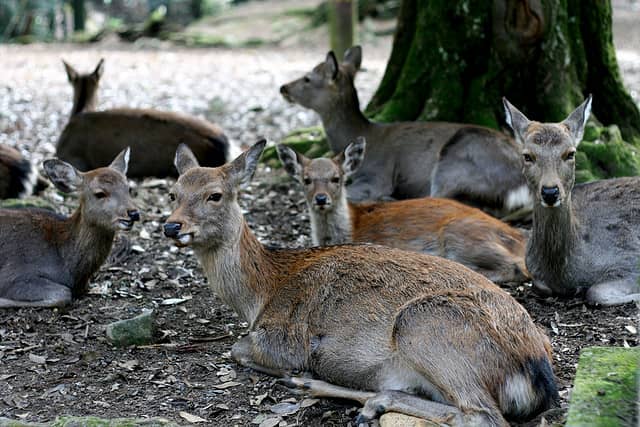Japan Considers Introducing Foreign Wolves to Cull Nuisance Deer
OutdoorHub Reporters 06.19.12

Japan has a deer problem that the country is trying to manage with the aid of hunters, dietary recommendations and potentially a foreign predator: wolves.
Deer are damaging agricultural and forestry industries in Nagano Prefecture in central Japan. Each year, wildlife causes between 1.5 billion and 1.7 billion yen ($18.98 million to $21.51 million US) in damage, 40 percent of which is attributed to deer, according to the daily newspaper Yomiuri.
Deer have spread from the Southern Japanese Alps to the Northern Japanese Alps and a population of some 105,000 deer (as of fiscal year 2010) needs to be culled over a wider area.
Japan has already taken measures to reduce the number of deer in Nagano Prefecture. A group called the Shinshu Gibier Kenkyukai, or the Game Study Group, was launched in March and became a national body on May 31.
A member of the Group, Chef Norihiko Fujimi, would like to see more people eating meals that contain game meat, such as deer.
“If venison consumption increases, it would make hunting profitable and promote the capturing of deer,” Fujimi said in an interview with Yomiuri. Some would like to see the meat introduced into school lunches since it is low in calories, but high in iron and protein.
Hunting and trapping have also been used as methods of culling the nuisance deer, though their effectiveness has been hampered as Japan has suffered from a steadily decreasing number of hunters over the past several years as older hunters retire and fewer youth become hunters. Membership in hunting associations is currently at a quarter of its peak, according to Yomiuri.
This is where the wolves come in. The Japan Wolf Association suggested introducing foreign wolves into the Alps to prey on deer, thereby reducing their numbers. More than a century ago, wolves were abundant in the Japanese Alps, but a government eradication program, depletion of available prey and a rabies outbreak led to their extinction by 1905, according to the book The Lost Wolves of Japan by Brett L. Walker.
Chairman of the Japan Wolf Association Naoki Maruyama said “[By using wolves] the burden on hunters will be reduced and the ecological system will be protected.”
This raises concerns for a government official who said, “we’re worried the number of wolves could increase to a point where they may pose a threat to people.”
The issue of (re)introducing wolf populations to an ecosystem is a controversial topic that has been debated back and forth in the United States for many years. Protected wolf populations have often been blamed for harming livestock and seriously damaging other species like elk, among other issues. In March, a congressional decision to remove the wolf from the federal endangered species list and enable state-based management was upheld by the Ninth Circuit Court of Appeals and the deadline to appeal the ruling passed without objection on June 12.

